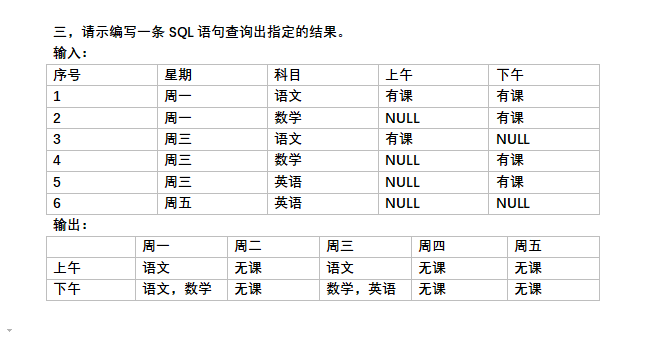In MATLAB, one can use datacursormode to add annotation to a graph when user mouses over. Is there such thing in matplotlib? Or I need to write my own event using matplotlib.text.Annotation?
问题:
回答1:
Late Edit / Shameless Plug: This is now available (with much more functionality) as mpldatacursor. Calling mpldatacursor.datacursor() will enable it for all matplotlib artists (including basic support for z-values in images, etc).
As far as I know, there isn't one already implemented, but it's not too hard to write something similar:
import matplotlib.pyplot as plt
class DataCursor(object):
text_template = 'x: %0.2f\ny: %0.2f'
x, y = 0.0, 0.0
xoffset, yoffset = -20, 20
text_template = 'x: %0.2f\ny: %0.2f'
def __init__(self, ax):
self.ax = ax
self.annotation = ax.annotate(self.text_template,
xy=(self.x, self.y), xytext=(self.xoffset, self.yoffset),
textcoords='offset points', ha='right', va='bottom',
bbox=dict(boxstyle='round,pad=0.5', fc='yellow', alpha=0.5),
arrowprops=dict(arrowstyle='->', connectionstyle='arc3,rad=0')
)
self.annotation.set_visible(False)
def __call__(self, event):
self.event = event
# xdata, ydata = event.artist.get_data()
# self.x, self.y = xdata[event.ind], ydata[event.ind]
self.x, self.y = event.mouseevent.xdata, event.mouseevent.ydata
if self.x is not None:
self.annotation.xy = self.x, self.y
self.annotation.set_text(self.text_template % (self.x, self.y))
self.annotation.set_visible(True)
event.canvas.draw()
fig = plt.figure()
line, = plt.plot(range(10), 'ro-')
fig.canvas.mpl_connect('pick_event', DataCursor(plt.gca()))
line.set_picker(5) # Tolerance in points

As it seems like at least a few people are using this, I've added an updated version below.
The new version has a simpler usage and a lot more documentation (i.e. a tiny bit, at least).
Basically you'd use it similar to this:
plt.figure()
plt.subplot(2,1,1)
line1, = plt.plot(range(10), 'ro-')
plt.subplot(2,1,2)
line2, = plt.plot(range(10), 'bo-')
DataCursor([line1, line2])
plt.show()
The main differences are that a) there's no need to manually call line.set_picker(...), b) there's no need to manually call fig.canvas.mpl_connect, and c) this version handles multiple axes and multiple figures.
from matplotlib import cbook
class DataCursor(object):
"""A simple data cursor widget that displays the x,y location of a
matplotlib artist when it is selected."""
def __init__(self, artists, tolerance=5, offsets=(-20, 20),
template='x: %0.2f\ny: %0.2f', display_all=False):
"""Create the data cursor and connect it to the relevant figure.
"artists" is the matplotlib artist or sequence of artists that will be
selected.
"tolerance" is the radius (in points) that the mouse click must be
within to select the artist.
"offsets" is a tuple of (x,y) offsets in points from the selected
point to the displayed annotation box
"template" is the format string to be used. Note: For compatibility
with older versions of python, this uses the old-style (%)
formatting specification.
"display_all" controls whether more than one annotation box will
be shown if there are multiple axes. Only one will be shown
per-axis, regardless.
"""
self.template = template
self.offsets = offsets
self.display_all = display_all
if not cbook.iterable(artists):
artists = [artists]
self.artists = artists
self.axes = tuple(set(art.axes for art in self.artists))
self.figures = tuple(set(ax.figure for ax in self.axes))
self.annotations = {}
for ax in self.axes:
self.annotations[ax] = self.annotate(ax)
for artist in self.artists:
artist.set_picker(tolerance)
for fig in self.figures:
fig.canvas.mpl_connect('pick_event', self)
def annotate(self, ax):
"""Draws and hides the annotation box for the given axis "ax"."""
annotation = ax.annotate(self.template, xy=(0, 0), ha='right',
xytext=self.offsets, textcoords='offset points', va='bottom',
bbox=dict(boxstyle='round,pad=0.5', fc='yellow', alpha=0.5),
arrowprops=dict(arrowstyle='->', connectionstyle='arc3,rad=0')
)
annotation.set_visible(False)
return annotation
def __call__(self, event):
"""Intended to be called through "mpl_connect"."""
# Rather than trying to interpolate, just display the clicked coords
# This will only be called if it's within "tolerance", anyway.
x, y = event.mouseevent.xdata, event.mouseevent.ydata
annotation = self.annotations[event.artist.axes]
if x is not None:
if not self.display_all:
# Hide any other annotation boxes...
for ann in self.annotations.values():
ann.set_visible(False)
# Update the annotation in the current axis..
annotation.xy = x, y
annotation.set_text(self.template % (x, y))
annotation.set_visible(True)
event.canvas.draw()
if __name__ == '__main__':
import matplotlib.pyplot as plt
plt.figure()
plt.subplot(2,1,1)
line1, = plt.plot(range(10), 'ro-')
plt.subplot(2,1,2)
line2, = plt.plot(range(10), 'bo-')
DataCursor([line1, line2])
plt.show()


